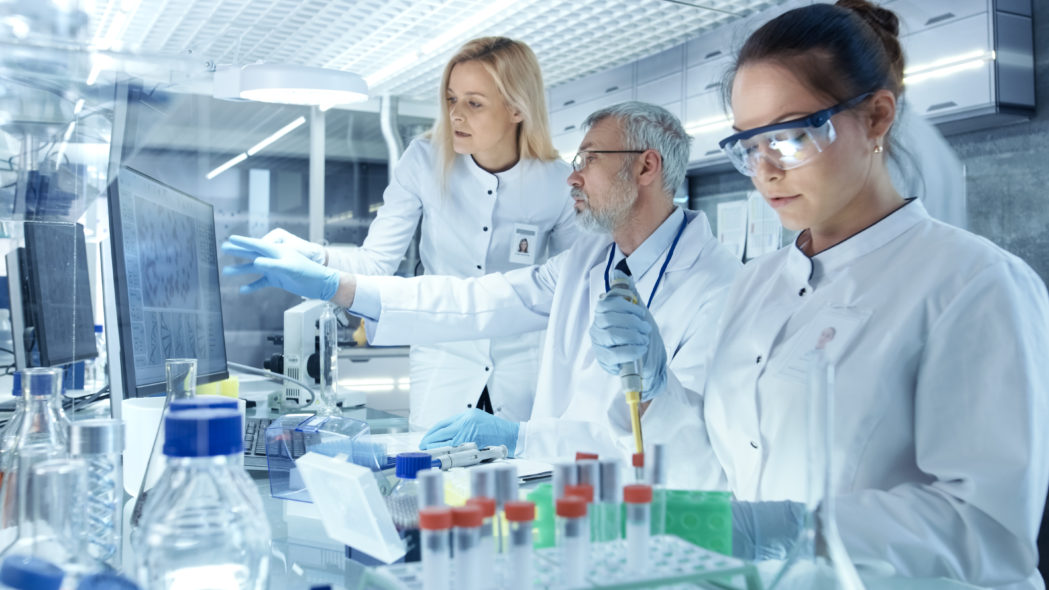Environment & Medical Technology

MedTech Europe members collaborate to improve the sustainability of their products and practices while also working with external stakeholders to ensure that environmental considerations are integrated in purchasing decisions and the design of healthcare. MedTech Europe is also an important stakeholder in legislative processes.
Lifecycle impacts of products
Member companies collaborate to minimise the environmental footprint of products throughout their lifecycle. This includes taking a responsible and sustainable approach to sourcing, design, manufacturing, logistics, use, and end-of-life (waste) phases. We also seek to provide guidance to our customers to identify the key issues in product lifecycles. In addition, we aim to find consensus on relevant proof points (third-party certificates, types of claims) for each of the lifecycle characteristics that can be used to differentiate products.
Regulatory Framework
A significant amount of work is dedicated to contributing to the process of designing fit-for-purpose environmental legislation. Among others, MedTech Europe is an active stakeholder in the following dossiers:
-
REACH Regulation (EC) 1907/2006
REACH Regulation (EC) 1907/2006
This regulation addresses the production and use of chemical substances and their potential impacts on human health and the environment.
MedTech Europe supports REACH as a means of minimising risks to human health and the environment while promoting innovation and competitiveness.
-
RoHS Directive 2011/65/EU
RoHS Directive 2011/65/EU
This directive restricts the use of ten hazardous substances (heavy metals, flame retardants and phthalates) in electrical and electronic equipment to prevent their release into the environment at the waste phase.
Many medical devices and IVD instruments fall within the scope of the directive, e.g. blood bag warmers, infusion pumps and baby incubators.
-
WEEE Directive 2012/19/EU
WEEE Directive 2012/19/EU
This directive regulates the disposal of waste electrical and electronic equipment (e-waste).
The directive covers many medical devices and IVDs, with some exemptions where recovery and recycling would carry a contamination risk.
-
Biocidal Products Regulation (EU) 528/2012
Biocidal Products Regulation (EU) 528/2012
Medical devices and IVDs which are or incorporate biocidal products are out of the scope of this regulation. However, Research Use Only products and the use of biocidal products in the manufacturing of medical devices/IVDs may need to comply with certain provisions of the regulation.
-
Circular Economy Package
Circular Economy Package
The circular economy is seen as an opportunity to manage finite resources in a more sustainable way. While healthcare products are subject to unique requirements in terms of sterility, safety and efficacy, continuous improvement to operations and products are necessary to enable more circular solutions for medtech products.
-
MDR/IVDR
MDR/IVDR
Both the Medical Devices Regulation and the In Vitro Diagnostic Medical Devices Regulation contain provisions related to environmental matters, e.g. on design and manufacture of devices, release of and potential exposure to hazardous substances, as well as on the safe disposal of devices after use.
Material Declaration
MedTech Europe promotes Full Material Declaration (FMD) as a way of increasing transparency of information in the supply chain in the field of chemical, environmental and product legislation. We develop guidance for medical technology manufacturers to communicate a common message up the supply chain on the background and importance of providing full material declarations. In doing so, we provide a rationale as to why FMD will be beneficial to customers, manufacturers, and suppliers. By developing a common understanding, we aim to set the basis for a future standardisation in the field of material declaration.
Climate Smart Healthcare
The medical technology industry provides products and solutions to keep people in good health. Our members believe that healthcare should not contribute to climate change which has immense impact on human well-being. To that end, members address lifecycle impacts of manufactured products while looking at optimal healthcare delivery to design sustainable care pathways.
See also
Find out more about how medical technology are regulated by visiting our dedicated section.
-
New Medical Technology Regulations
New Medical Technology Regulations
Medical technologies are tightly regulated in the European Union. Before a medical technology can be legally placed on the EU market, a manufacturer must comply with the requirements of all applicable EU legislation and affix a CE mark to their device.
Find the complete section here.



